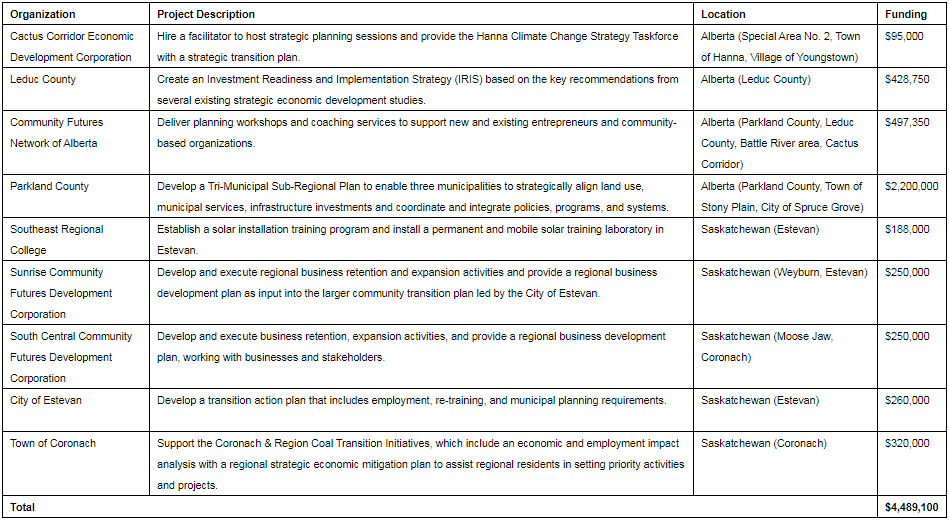A bit of relief is coming to Saskatchewan’s coal mining communities after the federal government made a funding announcement Friday morning.

Nearly $4.5 million will help ease the phase-out of coal in Saskatchewan and Alberta, including the communities of Estevan, Coronach, Moose Jaw, and Weyburn.
The City of Estevan is receiving $260,000 to “develop a transition action plan that includes employment, re-training and municipal planning requirements,” according to a federal government press release.
Estevan Mayor Roy Ludwig says the funding will help hire an economic co-ordinator, someone who will look at attracting industries and businesses to create new jobs in the city. Once SaskPower closes Boundary Dams 4 and 5 in 2021 and 2024, the city expects at least 300 workers to be out of a job.
The federal government created a task force last year to better understand the impact on Canada’s coal communities. Amarjeet Sohi, the Natural Resources Minister, says the government looked at training opportunities and transferable skills for the workers, which lead to funding $188,000 to Estevan’s Southeast Regional College. The money will “establish a solar installation training program and install a permanent and mobile solar training laboratory.”
Ashley Johnson, the financial secretary of United Mine Workers of America Local 7606, says he wants to see more funding for courses tailored to the trades.
- Train goes up in flames while rolling through London, Ont. Here’s what we know
- Budget 2024 failed to spark ‘political reboot’ for Liberals, polling suggests
- Wrong remains sent to ‘exhausted’ Canadian family after death on Cuba vacation
- Peel police chief met Sri Lankan officer a court says ‘participated’ in torture
“Without any secondary training or specialized training, a lot of our members out there are just equipment operators,” Johnson said. “But you have more potential for higher income when you’ve got some training in trades with you.”
Both Johnson and Ludwig would like to see more funding come from the provincial government.
The City of Estevan is lobbying the province for $5 million to generate economic diversification. They are also asking for an economic impact statement on the closure of the dams, something that the federal government is funding for the Town of Coronach.
The province is staying tight-lipped about their plans. Both Premier Scott Moe and Saskatchewan Environment Minister Dustin Duncan have said they’re waiting to find out more on how these funds will be divided before pledging provincial support.
On Friday, the province released the following statement in response to the funding announcement:
“The accelerated phase-out of conventional coal-fired electricity is a Government of Canada decision that requires a federal response to ensure workers and communities are not left behind, and we recognize this funding is part of that response. The Government of Saskatchewan acknowledges the important contribution coal workers, their families, and communities have made to the province and is ready and willing to work with the federal government to provide support.”
Johnson says he wants the province to take a proactive approach, instead of waiting on the federal government to act.
Johnson does agree with the province’s $1.4 billion investment in the Boundary Dam Carbon Capture and Storage project. However, he would like to see the project expanded to the Shand Power Station and Boundary Dam 6. Johnson says the Shand Power Station may continue operating past 2030 if it is retrofitted with carbon capture and storage technology.





Comments